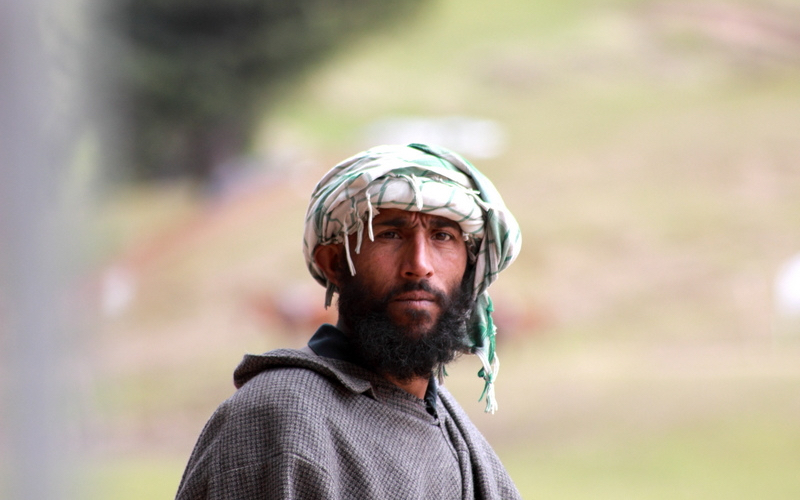
India’s Obsession with Kashmir
At the heart of the animosity between India and Pakistan is the issue of Kashmir. Having flared-up into full-fledged wars in the past, the current war-of-words between the two countries over Kashmir has once again brought to light the importance of this issue to India.
‘You complete me, Kashmir’
What has captured the imagination of India so intensely is that Kashmir continues to be a flashpoint of conflicts with Pakistan. Kashmir is composed of different territories that are governed under different political models and by different countries. The region includes Jammu and Kashmir, ‘Azad’ Kashmir, and parts that are administered by China.
A variety of stakeholders, including state and non-state entities, have made the ‘issue of Kashmir’ appear unamenable to any solution. India too, for its part, has been responsible for creating its own ‘regime of truths’ that has manufactured an understanding of Kashmir, which by being central to its existence is denying the resolution of the conflict. India has been vying for political and spatial control of Kashmir and has claimed it to be an integral part of the country.
India has created a ‘regime of truths’ on Kashmir which makes the potential loss of this territory inimical to the preservation of every other thing it believes it stands for. For instance, according to Navnita Chadha Behera, the Indian imagination encompasses Kashmir. It is the only Muslim majority state in India and embodies and manifests its commitment to secularism. But, it does not stop here. Identification with secularism in India through the ‘amalgamation’ of Kashmir into the Indian union is essential because it makes the notion of ‘secularism in India’ important because it places India in opposition to what its neighbor, Pakistan, represents.
The possession of Kashmir is thus seen as a double whammy for a country that is considered to be India’s arch rival. Its perception of itself as secular, unlike Pakistan, is bolstered by pointing to the presence of Kashmir in its union. Furthermore, as Alastair Lamb notes, “in the Kashmir issue, the ‘one nation’ school (which sees Pakistan as an affront) has seen the test case which, if it will not affect the future continuance of Pakistan as a state, will at least guarantee that the communal basis of Pakistan does not contribute to that state’s further territorial expansion at Indian exposure.”
Rooted in its understandings of Kashmir, the recent tirades by India have been reiterations of its beliefs that seek to reinforce its understanding of itself and the other. For instance, the Ministry of External Affairs in rebutting Pakistani claims remarked, “We have seen statements from Pakistan on the situation in the Indian state of Jammu and Kashmir. They reflect Pakistan’s continued attachment to terrorism and its usage as an instrument of State policy.”
While the Indian opinion on Kashmir and the issues affecting it have denied effective chances of a breakthrough in the persistent conflict, what has muddled the situation further is India’s reorientation of its policy. Where it had, as per the Simla Agreement, expressed its intent to settle the ‘bilateral’ differences over Kashmir, today it refuses to recognize Kashmir as a bilateral issue.
The recent statements about the problems in Jammu and Kashmir have been depicted as an ‘internal issue.’ Pakistan’s observations on the reported human rights violations in the disputed region have been downplayed as ‘interference.’ What’s more, India has been very vocal about its claims on portions that it does not control. For instance, the Indian Ministry of External Affairs in responding to ‘Black Day’ organized in Pakistan protesting against reported human rights violations, observed: “We have seen reports about rallies, events and statements related to Jammu & Kashmir in Pakistan and POK over the last two days…We once again ask Pakistan to stop inciting and supporting violence and terrorism in any part of our country and refrain from its deplorable meddling in our internal affairs in any manner.”
Where India has spun its regime of truth, its translation into material and discursive practices has created two distinct categories of violence – justified and not. Interestingly, India does not give any state (or province), according to its constitution, the right to secede. As a result since every state, including Kashmir is integral to this Union, violence directed at the Indian state amounts to sedition that is neither permissible nor justified. The state, on the other hand, for the sake of maintaining its integrity, can resort to extreme measures, including the use of force and the justification of violence directed by the state as an obvious, justifiable ‘defense.’
India has also created an understanding of acceptable and unacceptable dissenters. Much like the word ‘terrorism’, which as Michael Blain points is a ‘tactically polyvalent’ concept, dissent too is placed within the matrix of permissible and impermissible. As a result, while there are certain forms of dissent and dissenters that are permitted means of expression, there are others that are dismissed for they fail to conform to the acceptable standards laid down by the state. For instance, one of the easiest ways of dismissing an unacceptable version of dissent is to label dissenters as ‘terrorists.’
Time to end the obsession
The problem in Kashmir is political, but which for reasons rooted in India’s ideological dispositions, has been reduced to a mere law and order problem, externally sponsored by acts of terror. Such an approach to a conflict, which India has in the past recognized as such, is fallacious and stymies the creation of a comprehensive, sustainable solution.
The Indian claim directed at Pakistan that ‘Kashmir will never be yours’ is based on a false assumption. Where Pakistan does believe that Kashmir is an unfinished agenda of the partition, it does not want to grab the territory. After all, an internationally monitored referendum, which is what Pakistan demands, may not result in Kashmir’s accession to Pakistan.
The need of the hour is for India to acknowledge that there exists a problem, and that problem is dealing with Kashmir. Since recognition is the first step towards resolution, it will be in the interest of Kashmir, India and the whole region to recognize that its discursive and material practices that created ‘terrorists’ out of dissenters needs to be replaced with a regime of truth that is more amenable to a lasting solution.
